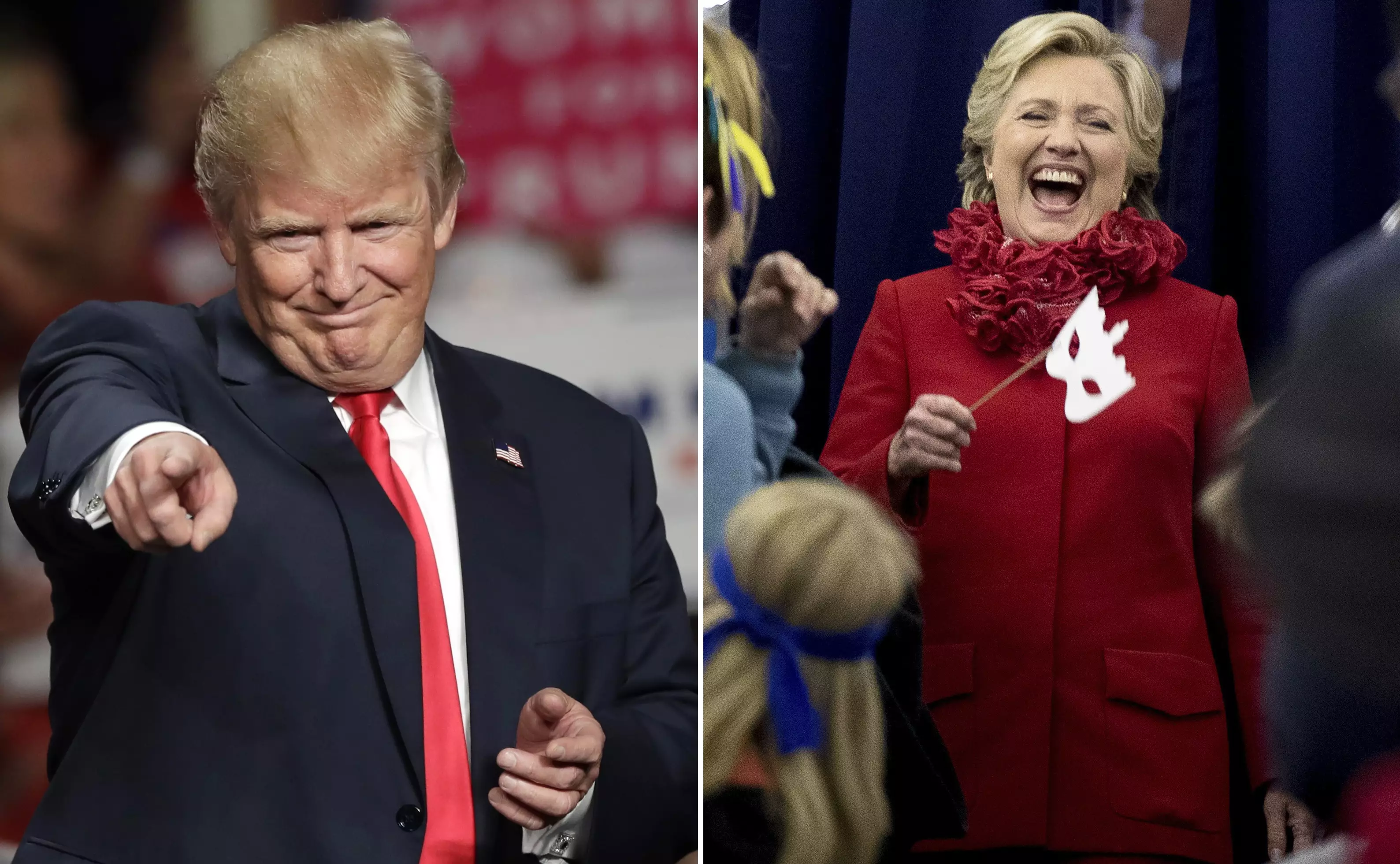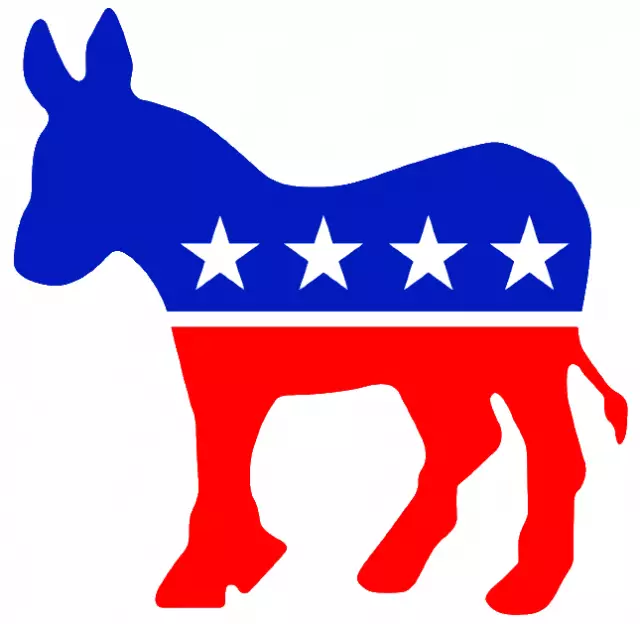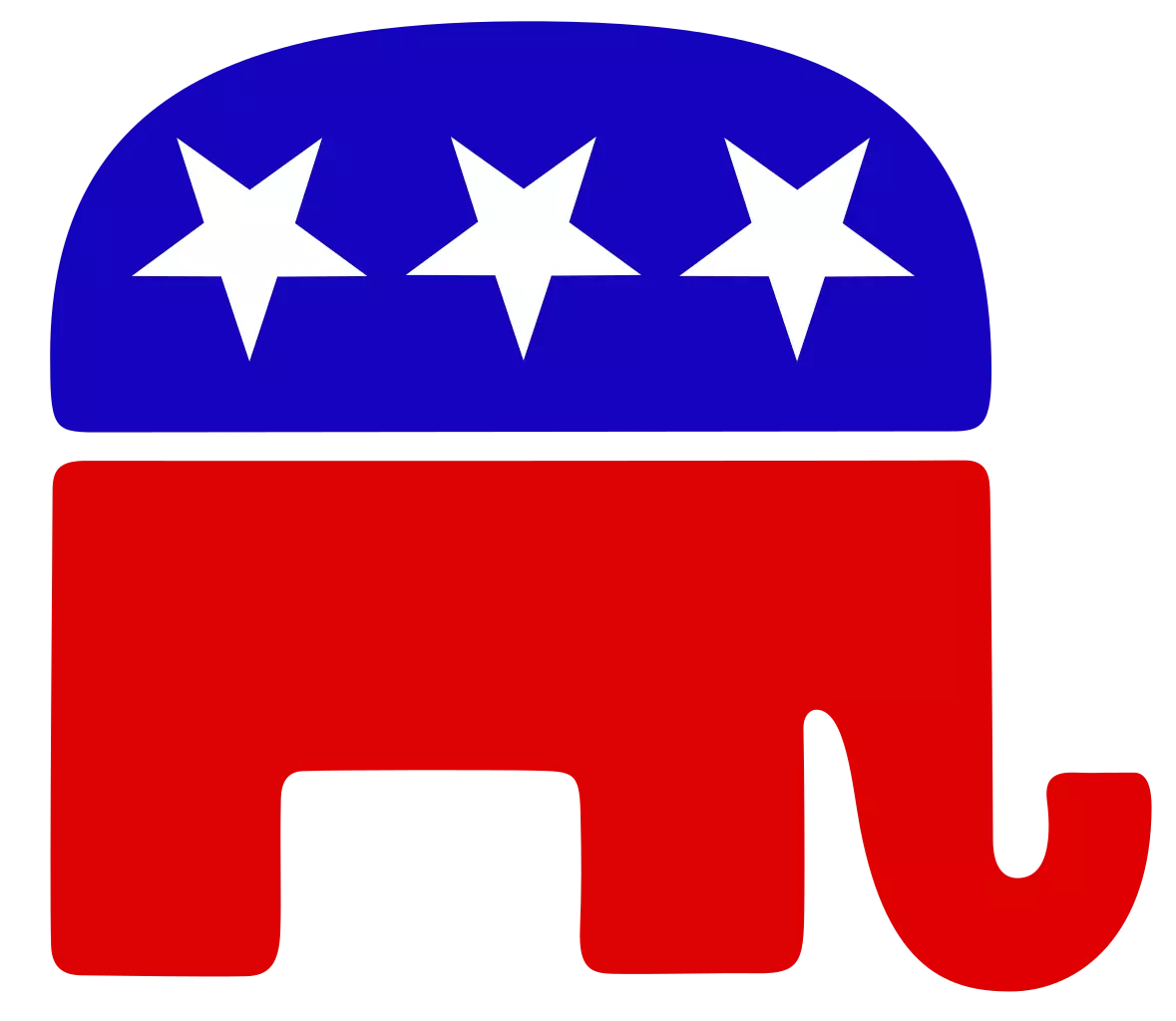
November 8, 2016 will go down in history as the day the most powerful country in the world elected either Hillary Clinton or Donald Trump as their next leader.
Advert
The early polls in the US presidential election contest suggested that Democratic nominee Clinton will marginally come out on top over Republican nominee Trump. However, you only have to look back at the UK's Brexit result to realise how inaccurate those polls can be.
At first glance, US politics looks as if it's decided on whoever can shout the loudest. To be honest, if recent events are anything to go by - leaked emails on one side and pervy comments on the other - that definition isn't far from the truth.
In America, when the polling stations open there will be five options to choose from on the uniformed ballot card; Republican, Democratic and three independents (Gary Johnson, Jill Stein and Evan McMullin). But there are only two realistic outcomes; either the USA will decide to vote in its first female president or the people will vote in Trump, who promises change.
It's very simple; the party with the most electoral votes wins and either Clinton or Trump will replace Obama as the President of the United States of America.
Advert
We are fully aware of the personal differences between each candidate. Clinton and Trump have both done an equally stellar job in jeopardising each other's chances. Personal differences aside, though, what is it that separates each party?
Dr Christine Harlen is a lecturer in U.S. politics at the University of Leeds. Despite believing that the election has been unusually negative, she has also noticed other differences from previous years which may explain the extreme rhetoric heard from both parties. "It's the first election where terrorism has been a big issue and Americans are really concerned about it," she says. "I think this explains some of the intensity behind this race to the White House."
The Democratic Party was created in 1848. After Andrew Jackson was heckled 'jackass' by his opponents, he decided to use the strong-willed animal as a symbol of his campaign. During the Civil War a rift grew within the party between those who supported slavery and those who opposed it. This deep division led to the creation of a new Democratic party, the one we now know today.
Advert

Image credit: Wikipedia
On the other side, the Republican Party was created just prior to the Civil War because of its long-term stance in favour of the abolition of slavery. In 1860 it became an established political party when its nominee Abraham Lincoln was elected as president. One of his best known policies during his presidency was to end slavery. This move helped solidify the Republican Party as a major force in American politics. It was also made into an interesting movie, Lincoln, a few years back. The party chose an elephant as its symbol in 1874.

Image credit: Wikipedia
Advert
Both parties that stand before us today are a mere shadow of what they were back then. Not because of the hatred shared between them, but because of the ever-changing issues that both parties put forward in the hope of either "making America great again" or being "stronger together"
Here are a few of the main differences between modern Democrats and Republicans.
Tax policy
Both parties favour tax cuts. But both have opposing views on where those slashes should be applied. The Democrats believe there should only be cuts for middle and low income families, but believe taxes should be higher on corporations and wealthy individuals.
Advert
The Republicans believe that there should be tax cuts for everyone, both corporations and people of all income levels.
Social issues
The Republican party tends to be conservative (traditional) on social issues. It generally opposes gay marriage, abortions and it favours gun ownership.
The Democratic party on the other hand tends to be more progressive in its views on social issues. It supports gay marriage and abortion but is strongly against the ideology of gun ownership.
Labour and free trade
Both sides have very different ideas when it comes to the business environment. Republicans tend to oppose increasing the minimum wage, citing the need for businesses to keep costs low so that each business can prosper.
Democrats favour increasing minimum wage so that Americans have more money with which to purchase goods. Clinton and her party believes that trade restrictions are important to protect American jobs.
Traditional Republicans favour free trade in order to keep costs low for consumers and make businesses more profitable and therefore creating space for growth. Trump breaks that tradition and is different from earlier Republican candidates. Dr Christine explains: "That's one of the reasons why he [Trump] does not have the support of Mitt Romney and other internationally thinking Republicans. Trump's message is that international relations needs to be reconfigured so that it benefits the United States."
Healthcare
Firstly, if you have a car accident in America and don't have healthcare insurance, you're screwed. There is no such privilege as the British NHS.
Obamacare went a bit tits up and it's all a bit of mess. On one side, Democrats generally prefer a lot of government regulation and oversight of the healthcare system, including the passage of the Affordable Care Act, in the aim to make healthcare accessible to everyone.
On the other side, Republicans are fully against this. The party believes that too much government involvement in the industry will drive up costs and have a negative impact on the quality of care that patients receive.
Social programs
The Democratic party across the board believes that the government should run such social programs as welfare, unemployment benefits, food stamps, and Medicaid that support people in need. It believes that tax dollars should be squeezed into these schemes.
Republicans fully acknowledge a need for social programs but don't support a tighter control. Instead, it favours supporting private organisations that help people in need.
Foreign policy
Generally speaking, when military involvement may be required, the Democratic party favours more targeted strikes and limited use of manpower.
Well, well, well, to the surprise of no one, Republicans prefers a full military effort. Let's not even mention the 'Trump Wall'.
"Clinton's views on foreign policy are generally on par with what traditional Democrats believe," explains Dr Christine. "Trump, on the other hand, is much more nationalistic in his views than Republicans have traditionally been."
Both parties agree that sending aid to other countries is a good thing, but disagree on the nature of that aid and who should receive it.
Energy issues and the environment
While democrats believe in restricting the process of drilling for oil or other avenues of fossil fuels to protect the environment, the Republicans generally want to expand it.
Education
Both parties agree that change is needed, but they can't agree on what that change should be.
Republicans would prefer individual state autonomy when it comes to education standards, whereas Democrats support the idea of having nationalised standards uniformed across all states.
"Individual autonomy creates market competition," says Dr Christine. "On the other hand, nationalised standards are more uniformed and would create consistency across the country."
Both parties are also divided when it comes to student loans for college (university). While the Democratic party supports giving students more money in the form of loans and grants, the Republicans favour the promotion of the private sector giving loans and not the government.
Crime and capital punishment
Aside from wanting to throw the opponent in jail, the Republican party generally believes in harsher punishment when it comes to crime. It also favours capital punishment.
The Democratic party is more liberal in its views. It believes that crimes that do not involve violence, such as selling drugs, should have lighter penalties focusing on rehabilitation. It's also against capital punishment in any form.
Stereotypes
I will let the expert explain this one. "Many Republicans may look at Democrats as snobs that look down on the 'good folk' in the American heartland," explains Dr Christine. "I would say that there are two main stereotypes of Republicans. One of them is the wealthy, established, business-orientated individuals that hold family values close. The other stereotype is those who are desperate for change."
Arguably, this year's presidential race to the White House has been one of the most dramatic sprints that has created an even further division between the two parties. "The level of nastiness is hard to imagine," adds Dr Christine. "For example, I have seen people on Facebook who have removed friends of those who wished Hillary well during her time in hospital with pneumonia."
At the heart of this election is an unknown change up against the status quo - Republican Vs. Democrat - Trump Vs. Clinton.
Featured image credit: PA
Topics: President